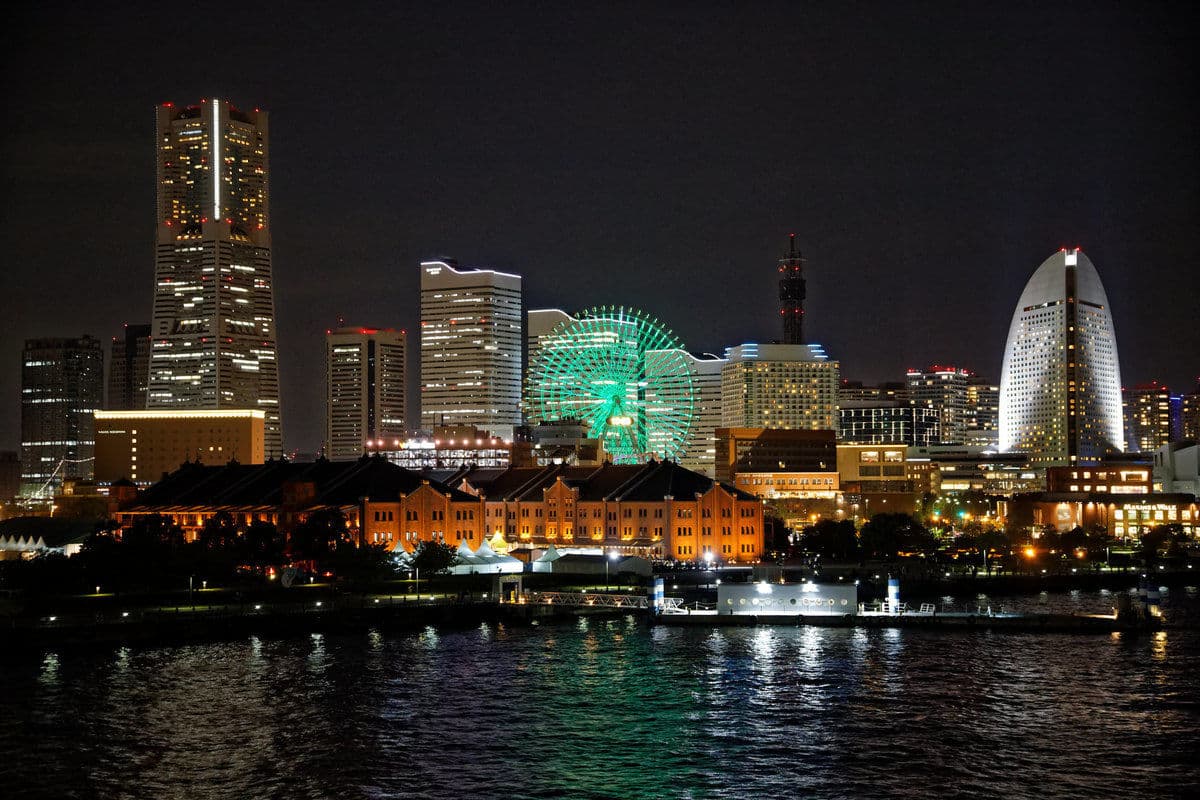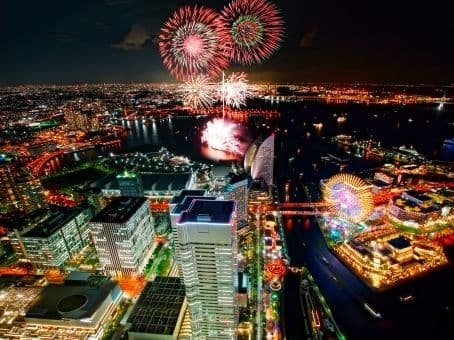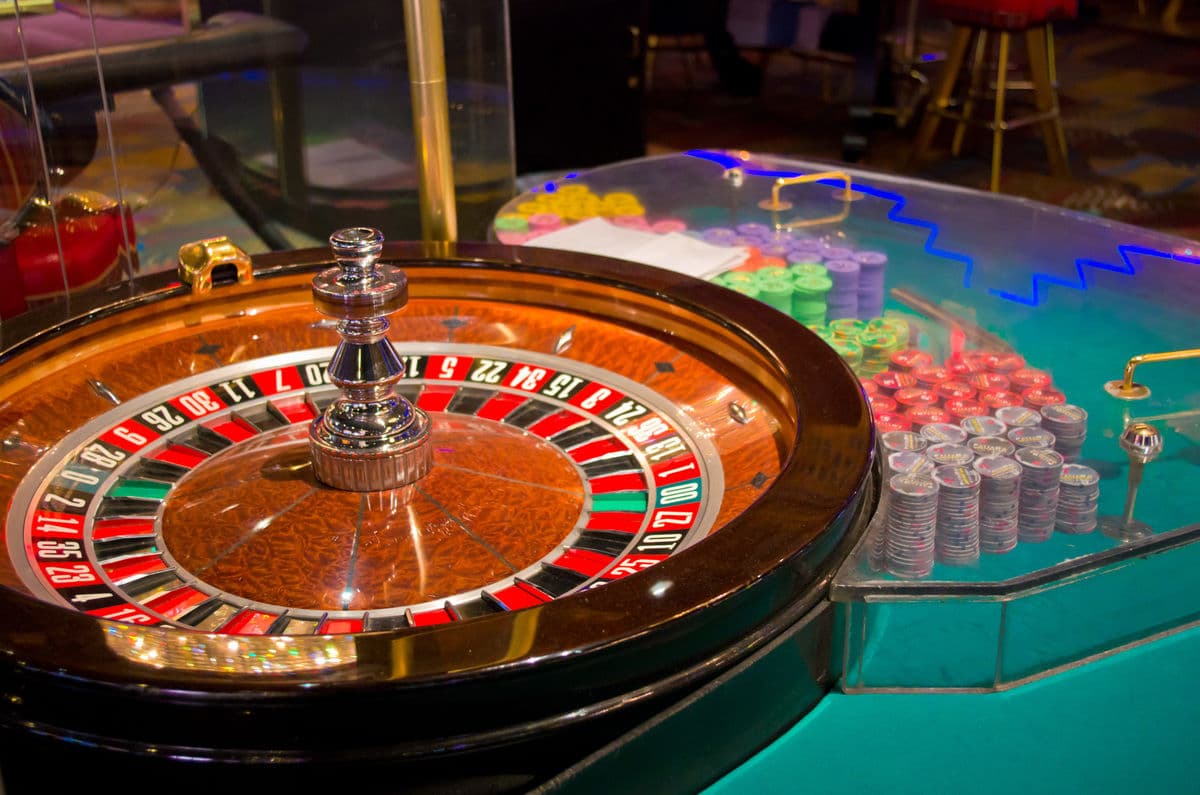Yokohama, a city once famous for its naval bases, historic Chinatown, and Yokohama-style Ramen, is now generating a buzz over the fact that it may be the first city in Japan to host a gambling Casino.
Japan’s Newly-Passed Casino Law
 Photo by Emile Guillemot on Unsplash
Photo by Emile Guillemot on Unsplash
Until recently, almost all forms of gambling in Japan were banned, except for horse races, certain sports, the lottery, and pachinko (for historical and cultural reasons). However, in July 2018 a bill was finally approved that will allow three integrated casino resorts to operate legally in Japan. These casino resorts will come with restrictions in place that will only affect local customers: locals will only be allowed to enter the casino a maximum of 3 times per week or 10 times per month, and there will be an entry fee of ¥6,000 for Japanese residents. Currently, only 3 prefectures in Japan—Wakayama, Osaka, and Kanagawa—have placed bids with the government to host the integrated casino resorts. There are no plans to open a casino in Tokyo at the moment.
Proposed Yokohama Casino Location
 "Yamashita Pier" by Tokyo Tina is licensed under CC 2.0
"Yamashita Pier" by Tokyo Tina is licensed under CC 2.0
The proposed location for the Yokohama Integrated Casino Resort is at the current site of the Yamashita Pier.

The pier is currently used for conventional ships and is located near the city center, so it plays a vital role in port-related services for the area.
Just 700 meters from the pier is Yamashita Park, another reclaimed land project that was opened in 1930. It is famous for its rose garden and a statue called “Little Girl with Red Shoes On”. Visitors can walk around and enjoy the scenery of the beautiful ships docked along the port.
 2017 - Yokohama - Yamashita Park by Ted McGrath is licensed under CC 2.0
2017 - Yokohama - Yamashita Park by Ted McGrath is licensed under CC 2.0
Just a 7-minute walk from Yamashita Park is Yokohama Chinatown, one of the world’s largest Chinatowns.
This area is famous for its historic Chinese community, which can trace its history back to 1859, when Yokohama was first opened to international trade. This resulted in an influx of Chinese traders, many of whom decided to settle there. Rather than its history, however, the area is more well-known locally for its famous cuisine; there are seemingly endless choices of Chinese dishes that have been altered to cater to Japanese tastes, giving them a unique appeal not found elsewhere.
Search Property For Sale in Yokohama
Access to the Casino by Public Transport
 "Yokohama Rapid Railway style station sign" by Kzaral is licensed under CC 2.0
"Yokohama Rapid Railway style station sign" by Kzaral is licensed under CC 2.0
Currently, there are 2 train lines that serve the Yokohama Chinatown and Yamashita Pier area: the Minatomirai Line and the Negishi Line. The Minatomirai Line travels between Yokohama Station and Motomachi-Chukagai Station, located within Yokohama Chinatown.
Motomachi-Chukagai Station
 "Motomachi-Chūkagai Station Exit 5" by RGB256 is licensed under CC 2.0
"Motomachi-Chūkagai Station Exit 5" by RGB256 is licensed under CC 2.0
For visitors coming from central Tokyo, the trip would be a 37-minute train ride from Shibuya Station. The proposed casino would only be a 2-minute walk from Motomachi-Chukagai Station.
Ishikawacho Station
 "Chinatown (North) Gates of JR Negishi-Line Ishikawacho Station" by Mister0124 is licensed under CC 2.0
"Chinatown (North) Gates of JR Negishi-Line Ishikawacho Station" by Mister0124 is licensed under CC 2.0
The second access point would be Ishikawacho Station on the JR Negishi Line, which connects Yokohama and Ofuna Stations. For travelers coming from central Tokyo, the trip would take 38 minutes from Shibuya Station. The proposed casino location would be a 14-minute walk from Ishikawacho Station.
The Casino Plans
 "No Casino Resort Plans" by Yokohama Harbor Resort Association submitted to Yokohama City
"No Casino Resort Plans" by Yokohama Harbor Resort Association submitted to Yokohama City
Various internationally-known casino companies have submitted plans on what a possible integrated casino resort on the Yamashita Pier would look like, along with one group who submitted a "No Casino" plan that would instead include an F1 Race track, major convention center and luxury hotel. Below are some examples of the plans that have been submitted so far.
"Yokohama Art & Culture Park and Entertainment Resort" by Caesar's Entertainment submitted to Yokohama City
Caesars Entertainment, owner/operator of several casinos and golf courses such as Caesar’s Palace, Harrah’s, and Planet Hollywood in Las Vegas submitted their proposed plan titled the “Yokohama Art & Culture Park and Entertainment Resort”. The building is styled after the famous Edo-period woodblock print, “The Great Wave off Kanagawa”. Las Vegas Sands Corporation, known for their landmark Casino Resort, the Marina Bay Sands in Singapore (which recently announced plans to ramp up its presence in the city-state with a 6.6 billion USD expansion), also outlined their plans for a Yokohama Integrated Casino Resort. Some estimates put the plans at a cost of around $12 billion USD. Other casino corporations that have expressed interest in opening an integrated casino resort in Japan include MGM Resorts International, Wynn Resorts Ltd., Melco Resorts and Entertainment Ltd., Genting Singapore Ltd., Hardrock International, and Mohegan Gaming and Entertainment.

"Integrated Casino Resort Plans" submitted to Yokohama City
Casinos and Real Estate Markets
 Photo by Nagatoshi Shimamura on Unsplash
Photo by Nagatoshi Shimamura on Unsplash
So how will this affect the local economy and more specifically, the real estate market? Recently there have been a slew of casinos popping up in neighboring Asian countries such as Cambodia, Vietnam, and the Philippines, all trying to lure the recent influx of Chinese gamblers traveling abroad. Due to the strict gambling regulations in China (currently, Macau is the only territory in China to allow gambling), many Chinese must travel overseas to scratch their gambling itch.
Property prices in the established gambling haven of Macau have seen a 5x increase in value since 2009. Some of the developing countries where casino operations have been ramping up have also seen a massive increase in prices for real estate. For example, land prices in certain districts of Phnom Penh, the capital city of Cambodia which recently saw Nagacorp announce the construction of a $3.5 billion USD mega-casino, saw price increases of 27% within the first 6 months of 2019.
 "Marina Bay Sands Casino, Singapore construction site in 2009" by Andy Mitchell is licensed under CC 2.0
"Marina Bay Sands Casino, Singapore construction site in 2009" by Andy Mitchell is licensed under CC 2.0
On the island of Phu Quoc in Vietnam, the government has struggled to keep control of skyrocketing real estate prices, forcing some locals to illegally divide land to be sold. Recently, the leading real estate developer in the country, Vingroup, announced plans to invest some $2 billion USD into the opening of a casino resort in Phu Quoc this year, which in turn brought in direct foreign investment from Singapore, the U.S. and others in the projected range of $2 billion USD by the year 2022. With the doors open for casino investment in Japan, many real estate investors are rolling the dice on Yokohama, and it may just be a bet that pays off.
Search Property For Sale in Yokohama

Editorial Department
Bringing you the latest real estate & lifestyle news in Japan










